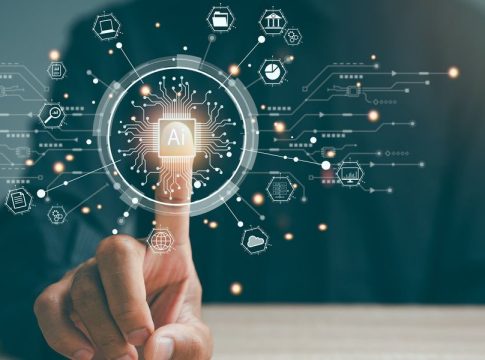The AI Dilemma: Navigating Conflicting Perspectives on Artificial Intelligence
Artificial Intelligence (AI) has increasingly become a double-edged sword, sparking passionate debates about its implications and potential risks. In the latest episode of AI discussions, opinions seem to flip-flop, revealing a landscape marked by both excitement and caution. Let’s dive into the current state of AI, the conflicting viewpoints surrounding it, and what it means for industries and society as a whole.
The Promise of AI Technologies
AI technologies have made significant strides in recent years, with advancements in machine learning, natural language processing, and automation transforming various sectors. Companies like OpenAI and Google are leading the charge, introducing products that can generate human-like text, analyze data patterns, and even create art.
For businesses, these capabilities present a tantalizing opportunity to enhance efficiency and boost customer experience. The ability to automate mundane tasks allows human workers to focus on more strategic activities, potentially leading to innovation and growth.
A Cautionary Perspective
However, as the conversation around AI evolves, a substantial number of experts and ethicists are urging caution. Concerns about job displacement, data privacy, and algorithmic bias are gaining traction. Historical instances—like the rise of industrial automation—serve as reminders of the disruption that technological revolutions can bring.
Critics worry that without proper regulations and ethical guidelines, AI could perpetuate biases enshrined in data or even create new forms of inequality. The idea is that today’s AI systems can present information in misleading ways, potentially manipulating user perceptions and experiences.
Striking a Balance: Regulation and Responsibility
The ongoing debate underscores the necessity for establishing frameworks that govern AI development. Leading tech figures and policymakers are called to collaborate in creating guidelines that ensure the technology serves humanity positively. Discussions around AI ethics have resulted in initiatives aimed at ethical AI development, focusing on transparency and accountability.
- Transparent Algorithms: Making AI’s decision-making processes understandable.
- Data Privacy Standards: Ensuring individuals’ personal data is safeguarded.
Moving Forward: Implications for Society
As we navigate this complex landscape, society stands at a crossroads. How we choose to develop and implement AI will inevitably shape our future. The potential for AI to improve lives is immense, but realizing this potential will depend on our willingness to confront its challenges head-on.
Ultimately, the conversation surrounding AI is not about whether we should embrace it or reject it—it’s about how we can leverage this technology responsibly. Embracing AI with open eyes, acknowledging both its possibilities and pitfalls, could be the key to a balanced integration into our lives. The next chapter in AI development hinges on how stakeholders—tech giants, policymakers, and society at large—respond to these unfolding challenges and harness its tremendous capabilities for good.

Writes about personal finance, side hustles, gadgets, and tech innovation.
Bio: Priya specializes in making complex financial and tech topics easy to digest, with experience in fintech and consumer reviews.

